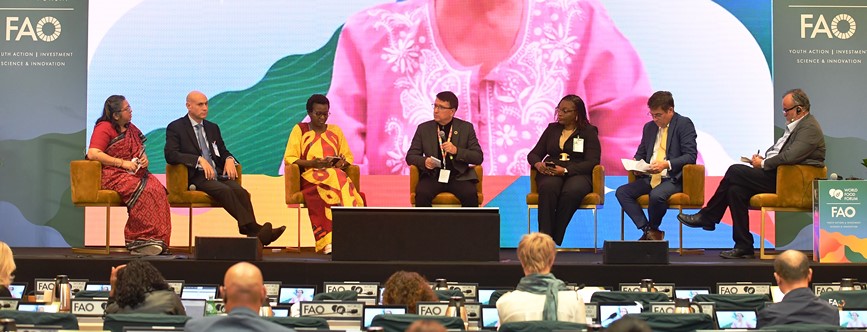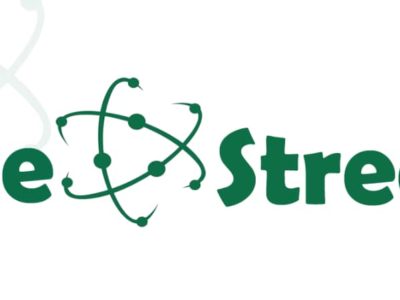The forum, organized by the United Nations’ Food and Agriculture Organization (FAO), is the world’s largest annual gathering of agrifood system stakeholders and this year focused on the theme, “Good Food for All, for Today and Tomorrow.” Ifedi highlighted the critical need for development organizations, innovators, and funding partners to join forces to sustainably scale solutions that address agricultural challenges and unlock new opportunities.
“We have worked alongside smallholder farmers globally for 80 years, and in Africa for 50 years,” Ifedi said. “Our experience has shown that scaling innovation is possible even in fragile and resource-poor environments.” She explained that Heifer has been actively operating as an “innovation broker,” introducing new technologies to communities, gathering feedback, and refining these solutions to enhance adoption and impact.
Collaborative Funding and Local-Global Partnerships Key to Agritech Success
Ifedi emphasized that development organizations and innovators must avoid working in isolation and instead leverage their strengths through extensive partnerships. “Innovation needs collaboration and leveraging resources, especially in resource-constrained environments,” she stated, advocating for more integrated efforts to foster the growth of agricultural technology.
She also highlighted the importance of collaboration between local innovators, who understand the unique challenges on the ground, and global innovators who bring technological expertise but often lack contextual knowledge. “For effective adaptation, local and international innovators must unite to leverage the strengths of both,” she said.
ADVERTISEMENT

Catalytic Financing Driving Agritech Growth
Ifedi showcased Heifer’s success story with Hello Tractor, an agritech startup that scaled its mechanization solution across Africa after winning Heifer’s Agriculture, Youth, and Technology (AYuTe) Africa NextGen competition. The competition identifies promising agritech solutions and provides catalytic financing to test innovations. “Over three years, our catalytic funding helped attract commercial capital to Hello Tractor, allowing the startup to scale significantly,” Ifedi explained, stressing the need for diverse funding approaches to advance last-mile innovations.
Launched in 2021, Heifer’s AYuTe Africa NextGen initiative aims to empower young African entrepreneurs by providing financing, mentorship, and incubation for agritech solutions addressing the challenges faced by smallholder farmers. The annual AYuTe Africa Challenge awards grants to promising startups and supports their growth.
A Call for a More Collaborative Approach to Agricultural Innovation
Ifedi also praised the FAO’s efforts in promoting collaborative approaches to solve agriculture’s pressing issues. “We need a more interconnected ecosystem that utilizes shared knowledge, experience, and expertise to rethink innovation in agriculture,” she concluded.
As global food systems face increasing strain, Heifer International’s call for coordinated action, creative funding solutions, and inclusive innovation marks a critical step toward sustainable agricultural development and achieving zero hunger in Africa.































